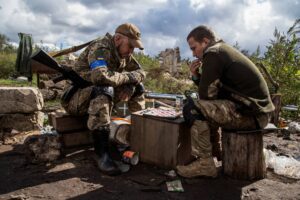By Nika Sabzevari
It is March 10th, 2024, my 20th birthday. Surrounded by my parents and friends, I, an Iranian-German woman living in Spain, have been showered with so much love. My birthday reminds me of all my great privileges and the tangible and intangible values in my life that have shaped the person I am today. But it also reminds me of all the parts of existence that I do not have or that have been taken from me solely for being a child of the Middle East. A child who could only see the turmoil through the lens of the West.
For the majority of the Middle Eastern diaspora, myself included, the arrival of spring always brings with it the anticipation of spending the summer in the homeland, be it Lebanon, Iran, Jordan, Armenia, or elsewhere in the region. The excitement of reuniting with our cousins, eating our grandmother’s food, and enjoying the beautiful scenery of our homelands is priceless. But with all the joy of spending the summer reconnecting with our roots, there is also a sense of melancholy.
At the end of my annual family trips with my extended family, every farewell hug from my relatives at the airport reminds me of the circumstances that led my parents to leave the Middle East in the first place. And this is only the scenario that the privileged among us are lucky enough to experience– for the less fortunate, the opportunity to receive a hug from their loved ones is only a distant dream. Given the current socio-political conditions of the Middle East, the diaspora lives with more uncertainty than ever about when they may visit their homeland again.
As children of the Middle East, we have mastered the art of survival. Our suffering and sacrifices have become synonymous with survival. We play with the rich and colorful spices of our culture, be it saffron or za’atar, to not forget the unique charm of our diverse cuisines and to keep our deeply rooted cultures alive. We cling to the photo album of generations of our family because it allows us to remember simpler times.
Our suffering as children of the Middle East, at any level, is more than a narrative perpetuated by powerful constitutions. As children of the Middle East, we have witnessed more injustice than justice, more frustration than peace, and more despair than hope. We wake up to harrowing headlines and reach out to our loved ones with trembling voices, longing for their safety. Innocent children and mothers carry wounds that were never meant to be theirs to bear. Yet amidst the chaos lies a profound and undervalued beauty within the Middle East, a narrative that we, as its children, feel committed to translate to the West.
It was only through the lens of distance and diaspora that I began to truly fathom what it meant to be a child of the Middle East, even though I had never lived there. This new awareness opened up a profound sense of collective suffering, a shared narrative that defies geographical boundaries. It’s a unique connection formed not just by blood or culture but by the echoes of history and circumstance we carry as children of the Middle East– no matter where we live. This realization is a testament to the resilience that characterizes our communities and unites us in complex and deeply beautiful ways. And as we watch innocent lives bear the wounds caused by political decisions, we, as the Middle Eastern diaspora, must cling to our photo albums and the hope of easier days, days when an ever-lasting return to our beloved homelands feels closer to our hearts.
Featured image courtesy of Unsplash.com







